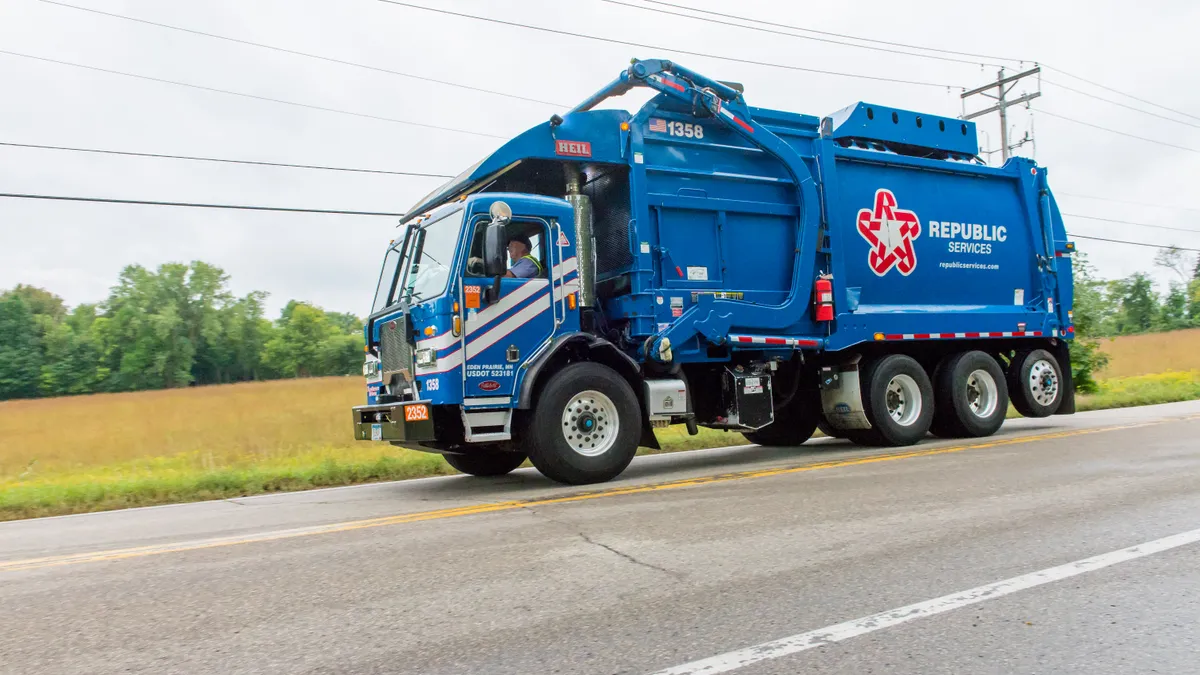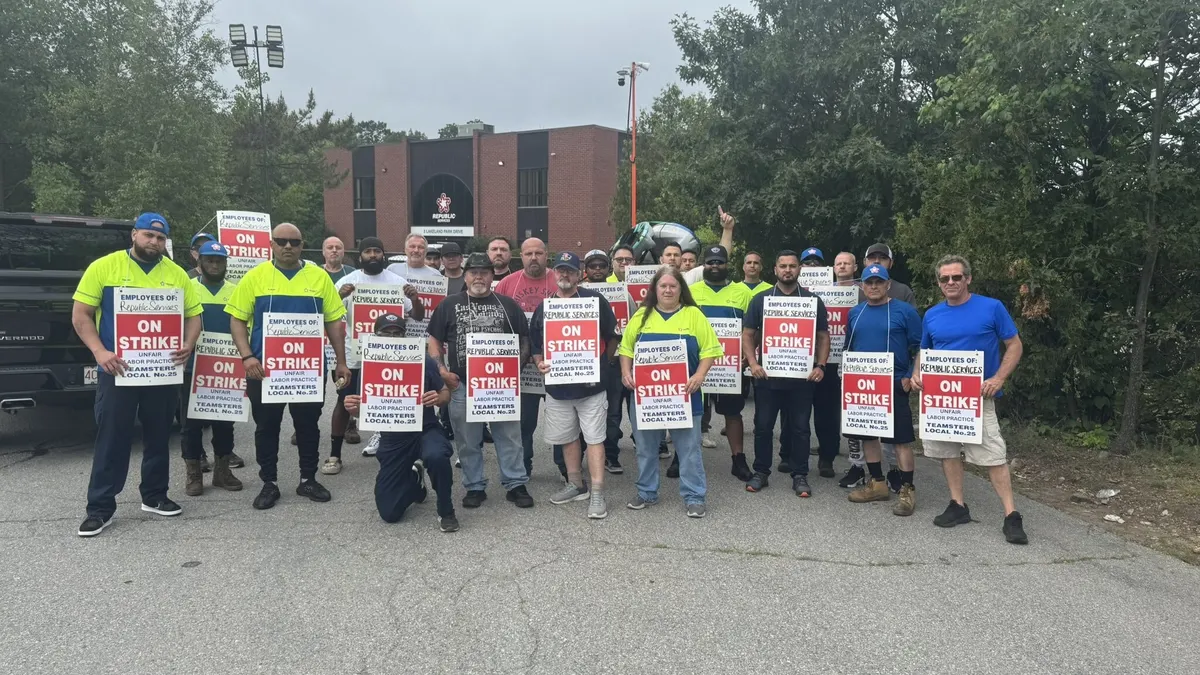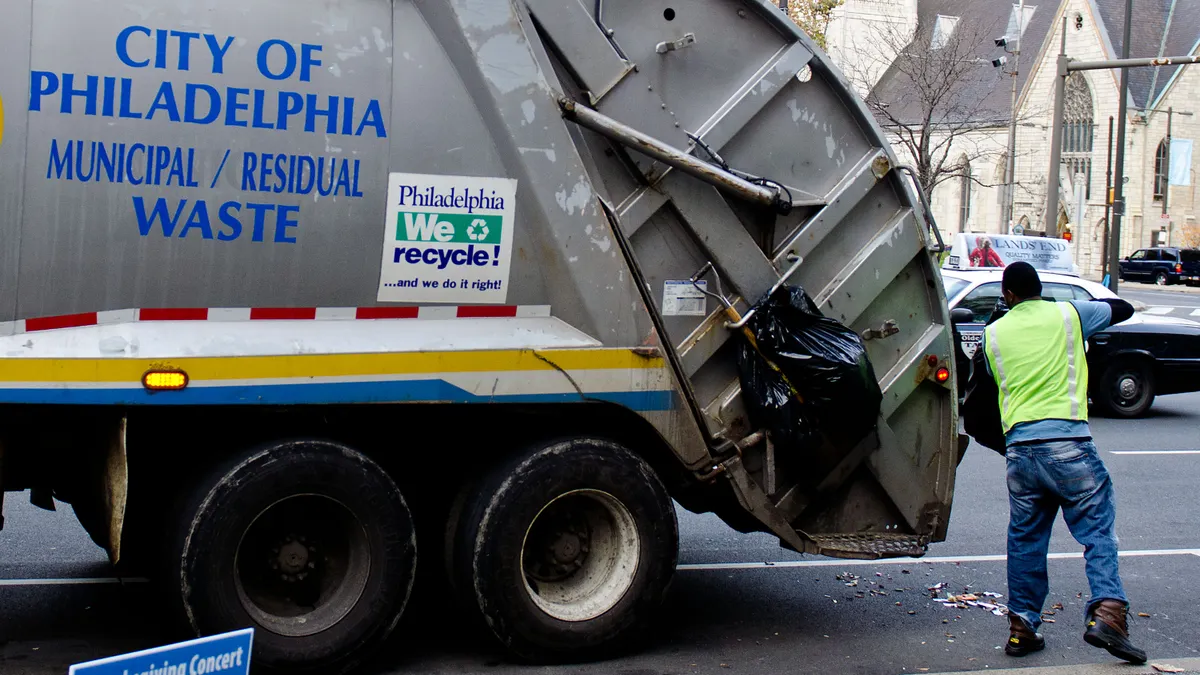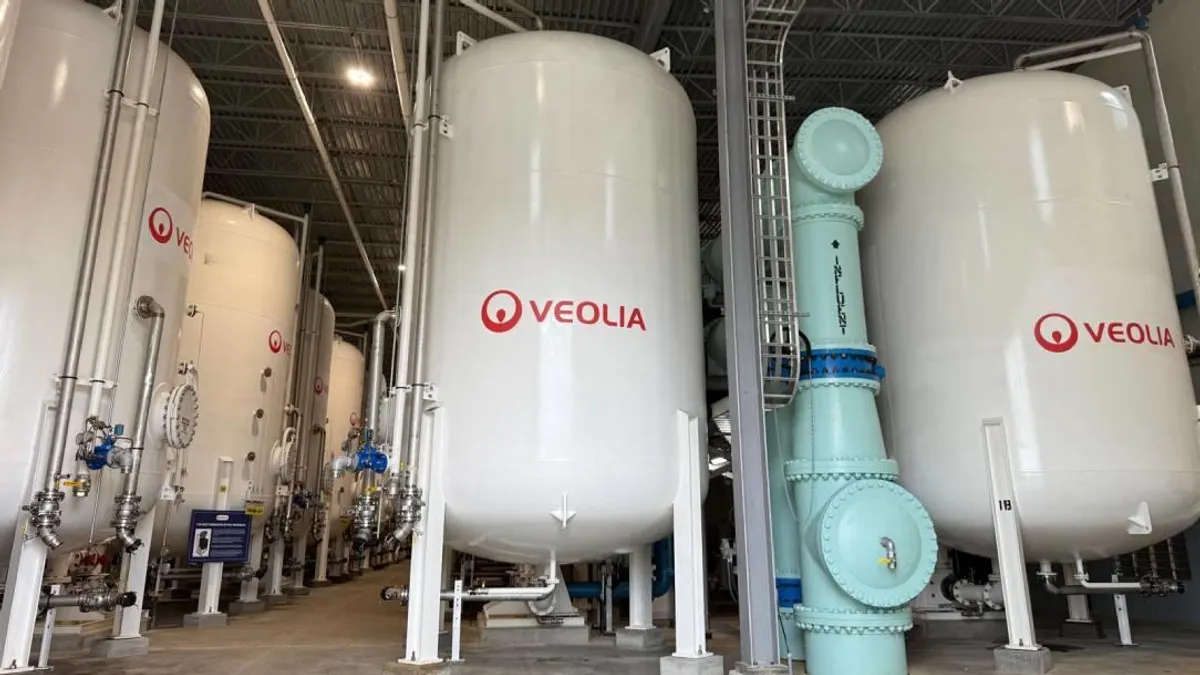Waste is largely a local issue in the U.S., especially when it comes to collections. Because of the way that the industry has developed, there are some municipalities that have multiple private haulers collecting household or business waste, sometimes on the same street or city block. The large number of haulers can cause confusion for residents — and bring complaints of too much noise, air pollution and traffic congestion.
To help combat those complaints, raise revenue and meet ambitious diversion goals, some city and municipal leaders are turning to franchise systems. Instead of residents and businesses setting up individual contracts in an open market, cities create zones for haulers to collect commercial or residential waste, often with some kind of revenue sharing between the city and the hauler.
While there are some who see franchising as antithetical to a free market system, many in the industry are starting to view the arrangement as the way forward for waste collection. With Los Angeles serving as an example of how a large franchise system can work, and with New York City considering a franchise system, other municipalities won't fall short of avenues to look to for ideas or planning support.
During a panel at WASTECON in Baltimore, two municipal leaders — David Herberholz, director of solid waste and recycling in Minneapolis, and Erick Roberts, superintendent of environmental services in Springfield, MO — discussed their own experiences in exploring and researching franchise systems with the audience. Neither Minneapolis nor Springfield have established a franchise system, but both cities are exploring the idea as they consider future waste management strategies.
'If they're in limbo, it puts you in limbo'
As with any large decisions that will affect a community, it's important to engage with all the stakeholders that would be impacted by franchising — especially businesses and residents.
"Nobody is passionate about their trash until you start messing with it," Roberts said.
It's important to regularly meet with the residential or business community whose waste collection is going to change. Putting out trash or recycling can become routine, and a municipality disrupting a routine can result in resident or business dissatisfaction.
To counter those dynamics, Springfield officials did a survey of how residents and businesses feel about their waste collection and found, for example, that residents wanted to recycle and cared about local hauling companies. City staff also held community input meetings and met with elected officials to get more information. According to Roberts, now that Springfield has given haulers a state-mandated two-year notice of a franchise system, officials are planning more meetings with community groups and setting up a public forum with the haulers and city council.
"Any communication is better than no communication," Roberts said. "If you think the feedback is negative, at least you know where they stand. If they’re in limbo, it puts you in limbo. If you have a responsive no, at least you know where to stand."
Dealing with elected officials
Municipal staff and department heads can, and often do, outlast the administrations of mayors, managers and council members. The political and economic realities of different cities can also pose obstacles. Herberholz said that, the last time there was an election in Minneapolis, about half of the city council was replaced.
"What I’m seeing, at least in Minneapolis, right now is those ones that support our initiatives are those ones who have some type of green or environmental background. Some of the ones ... they represent areas that have more economic challenges, have some cultural diversity there where their residents don’t recycle as well," Herbherholz said. "We do door knocking and all that, but find it very difficult for us to push the message of recycling when someone is struggling to put food on the table."
So, he said, what was really necessary was finding initiatives that all members of the city council could agree on. In advocating for waste management, Herberholz said, it's important to find a "middle ground" for city legislators focused on environmental issues and legislators focused on more fundamental economic needs.
"We do door knocking and all that, but find it very difficult for us to push the message of recycling when someone is struggling to put food on the table."

David Herberholz
Director of solid waste & recycling, City of Minneapolis
Additionally, depending on how local governments are structured, it can be difficult to get the time necessary to explain complex issues to decision makers. By the time an issue reaches the council in Springfield, Roberts said, it's already a "fire" for the department handling it, in many cases.
"We live and breathe this every day, down in the weeds," Roberts said. "By the time you get to them in the legal public setting, you’ve got 30 minutes to try and explain your fire, and to get them to act on your fire."
The problems of getting time in front of local lawmakers and dealing with election cycles can compound themselves, too. It's feasible that, by the time it takes to schedule three 30-minute public sessions with the city council, half of the councilmen and women will leave office — meaning city staff must begin the education process all over again. With the complex web of factors that go into establishing a franchise system, the need for concise, effective and politically uncomplicated explanations is especially large.
'I like my hauler'
Something to consider is that, in some instances, residents or business owners can become attached or emotionally invested in their waste collectors. There is plenty of recognition for the men and women who drive trash trucks — including a holiday that gets more recognition every year — but when considering a franchise system, the actual people picking up the trash may not seem as consequential as new routes, schedules and contracts.
However, as pointed out by an audience question, some people do become attached to their waste haulers. It can be an unanticipated struggle to deal with customers who will say, when they hear change may be coming, "I like my hauler."
In Springfield, for example, there is a small hauling company that's been a part of the community for multiple generations — and that has made a strong impression, too. According to Roberts, the family-owned hauler donates cleanup services during community events and, when they hear that customers are going through financial struggles, continue services without charging while that customer gets back on their feet. And it probably doesn't hurt that, as Roberts said, that family-owned hauler is one of the cheaper options in town.
"I have not met one of their customers who is not emotionally attached to them," Roberts said. He added that city staff working on Springfield's waste management strategy gained a lot of ground with residents and the business community by reassuring people that small, family-owned business would have a seat at the table.
Between dealing with community feedback, explaining plans over multiple government administrations and considering small community haulers, it all comes back to the importance of communicating. Franchising is an enticing strategy for cities looking to bring in some revenue and get more oversight on waste collections. But it's also a complex shift in municipal operations, and so every stakeholder should have the opportunity to stay involved every step of the way.

















